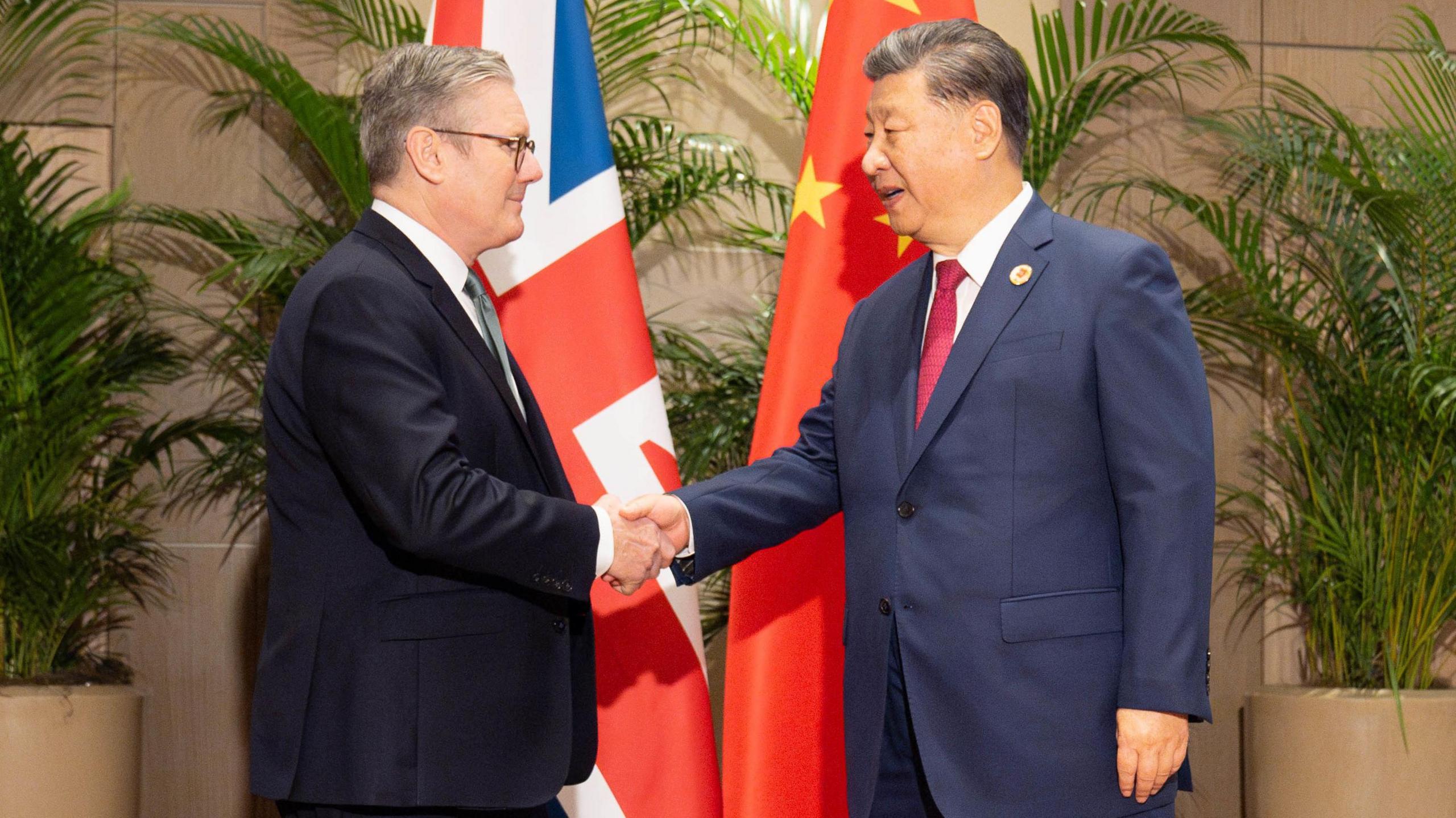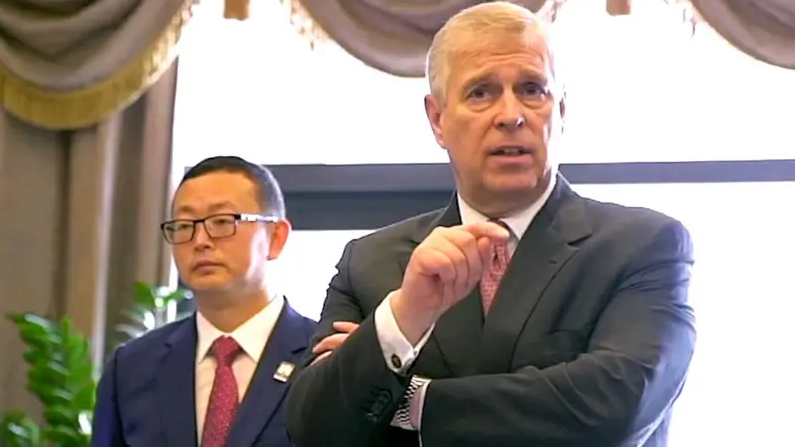Spy allegations pose dilemma for UK's China policy

Prime Minister Sir Keir Starmer met Chinese President Xi Jinping last month
- Published
The Chinese embassy has told the UK to "stop creating trouble", after a businessman accused of being a spy for China was banned from the country.
The revelations about Yang Tengbo, who denies wrongdoing, and his links to Prince Andrew, have sparked renewed calls for the UK to designate China a threat to national security.
The issue poses a dilemma for the government, which is hoping to strengthen ties with China to help boost economic growth and tackle shared issues like climate change.
In the House of Commons on Monday a number of senior Conservatives called for tougher measures to protect the UK against covert Chinese influence.
The government has committed to introducing a Foreign Influence Registration Scheme, external next summer, after the previous Conservative government legislated for it.
It would require individuals and organisations acting for a foreign power to declare any political lobbying.
The scheme will have two tiers, with countries specified in the "enhanced tier" requiring the registration of a wider range of activities "where this is necessary to protect the safety interests of the UK".
But its implementation has been delayed, with the measures now due to take effect from next summer.
Yang Tengbo: Who is alleged Chinese spy linked to Prince Andrew?
- Published31 January
We want 'strong' UK-China relationship, says Starmer
- Published18 November 2024
Labour tiptoes nervously towards a China policy
- Published18 October 2024
Conservative former Home Secretary Suella Braverman claimed the scheme was "ready to go" at the time of July's general election and was among several Tory MPs to call for China to be placed in the enhanced tier.
Meanwhile, former security minister Tom Tugendhat said MI5 had advised the scheme was "not worth having" if China was not in the enhanced tier.
Ex-Tory leader Sir Iain Duncan Smith, who like Tugendhat has been sanctioned by China and is one of the country's most vocal critics, said there should be "no more delay" in implementing the scheme.
He said Mr Yang was not a "lone wolf" but one of thousands of individuals who had penetrated UK institutions.
When the party was in government, the Conservatives were divided over whether to designate China a security threat.
Powers to introduce a Foreign Influence Registration Scheme were part of laws passed in July 2023 but one had not been brought in by the time of the general election a year later.
Speaking on Monday, Security Minister Dan Jarvis insisted the scheme was not ready when Labour took office and the government was now planning to introduce the regulations in Parliament in the new year, ahead of its summer launch.
However, he refused to confirm whether China would be in the enhanced tier, only saying that decisions would be based on "robust security and intelligence analysis".

Yang Tengbo, who denies he is a spy, had forged close links with Prince Andrew
Such a move would be likely to provoke a backlash from China at a time when the UK government is seeking a more stable relationship.
Last month Sir Keir Starmer met President Xi Jinping on the fringes of the G20 summit in Rio de Janeiro - the first time a UK prime minister has met the Chinese leader in person since 2018.
Chancellor Rachel Reeves is also due to visit Beijing next year to discuss economic cooperation with her Chinese counterpart.
It comes after a period of strained relations between the two countries, with tensions over issues including China's treatment of the Uyghur minority group in Xinjiang and pro-democracy activists in Hong Kong.
On Monday, Sir Keir said he was "concerned" about the challenge posed by China but repeated the government's position that it was necessary to cooperate on issues like trade, climate change and human rights.
As one of the UK's biggest trading partners, any souring of relations with China could impact the government's goal of boosting economic growth at home.
Banks including HSBC and Standard Chartered have reportedly raised concerns privately about the potential impact of including China in the enhanced tier.
According to Bloomberg, external, executives fear this could impede business and trigger negative publicity if they are forced to declare activity.
China has strongly denied claims of espionage and accused some MPs of trying to "smear" the country.
But on Tuesday, UK judges issued another ruling on an alleged Chinese agent, Christine Lee, upholding a decision by MI5 to warn she had infiltrated Parliament.
With a decision on whether to designate China as a threat to national security looming, the ongoing row could further damage the UK's attempts to repair relations.

Sign up for our Politics Essential newsletter to read top political analysis, gain insight from across the UK and stay up to speed with the big moments. It'll be delivered straight to your inbox every weekday.